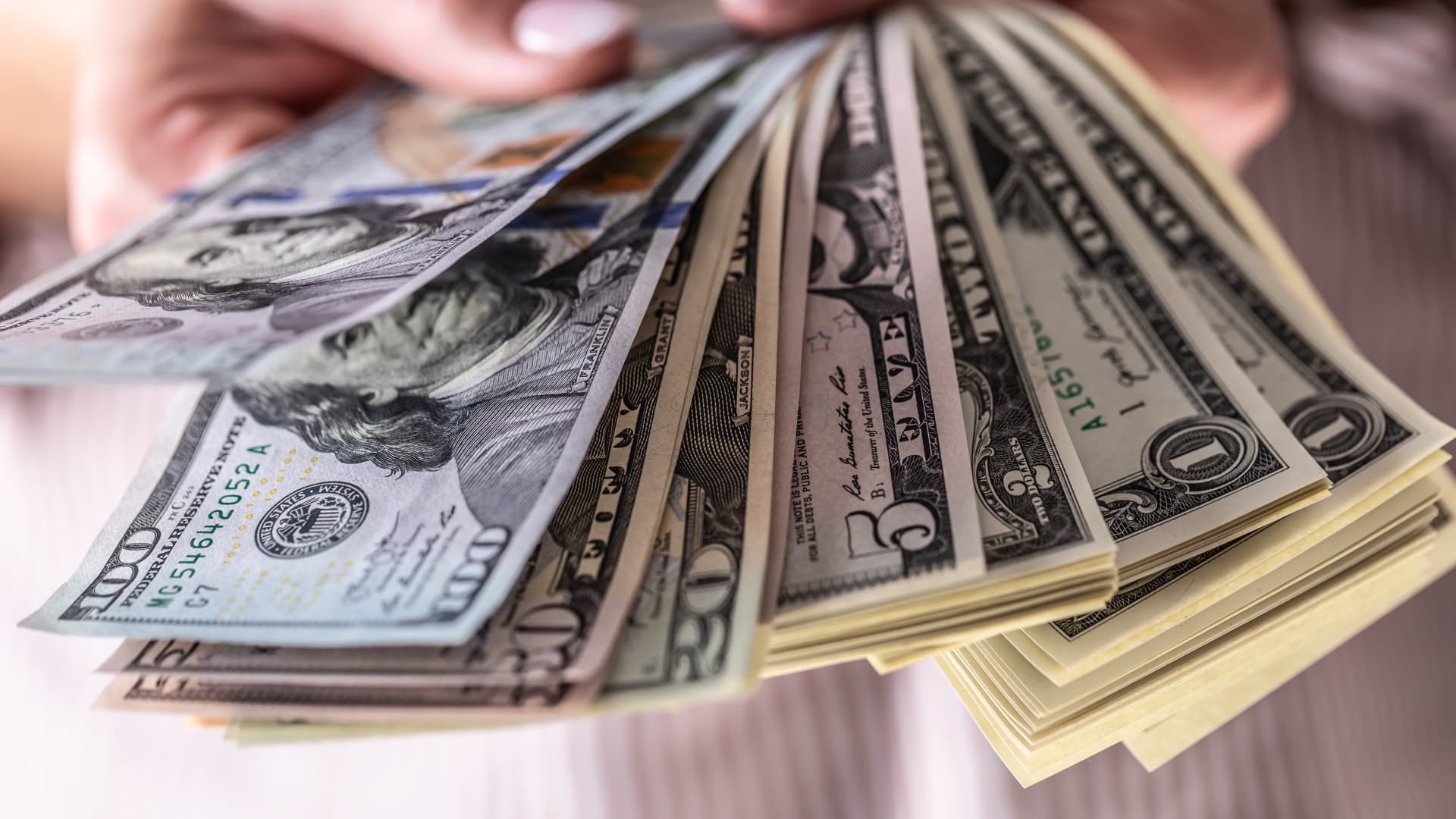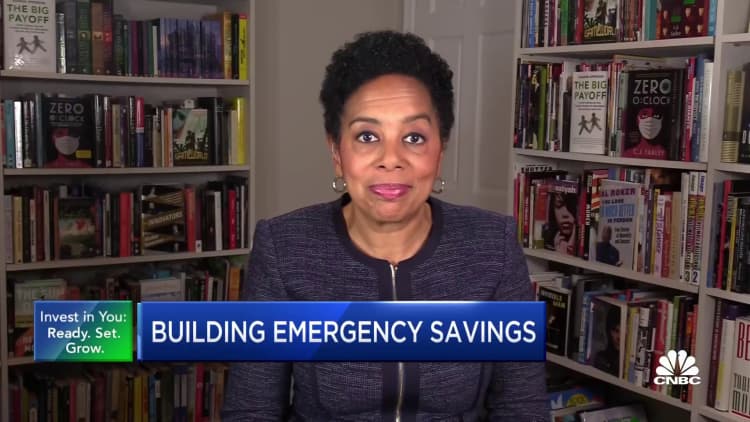
Simpleimages | Moment | Getty Images
Millionaires moved money out of stocks into cash and cash-like investments in the past year and may add to those allocations over the next 12 months, according to a new CNBC Millionaire Survey. But the average investor may not be wise to mirror the millionaires.
Much would depend on their circumstances and rationale for the shift, financial advisors said.
Higher interest rates make cash more attractive
Millionaires held 24% of their portfolio in cash as of spring 2023, up significantly from 16% in fall 2022 and 14% from spring 2022, according to the survey.
The poll considered cash and cash-like investments to include money market funds, checking and savings accounts, plus certificates of deposit. It surveyed 764 people with $1 million or more of investable assets and was conducted in April 2023.
A recent Capgemini Research Institute survey also found affluent investors are holding a record share of cash.
On one hand, having more money in cash today isn’t necessarily a bad move due to higher interest rates, advisors said.
Cash-like accounts had been paying rock-bottom interest rates for much of the period since the 2008 financial crisis, meaning investors largely had to turn elsewhere for any hope of a return on investment.
But interest rates have been rising steadily since the Federal Reserve started raising its benchmark rate aggressively last year to tame high inflation.
Today, cash-like accounts can yield investors up to roughly 5% or so, making it more attractive as an asset class, said Ted Jenkin, a certified financial planner based in Atlanta.
“Now investors have choice,” said Jenkin, founder of oXYGen Financial and a member of CNBC’s Advisor Council. However, with inflation currently running at an annual pace of about 5%, it ends up roughly being a net wash, he added.
However, not all accounts are necessarily paying competitive rates to consumers. For example, high-yield savings accounts offered by online banks typically offer much higher payouts on cash than a traditional savings account held at a brick-and-mortar bank.
Affluent investors may also have more money on the sidelines these days as they wait for other investment opportunities such as private equity and real estate to open, Jenkin added.
Why it’s not always smart to move more money to cash
However, for the average investor, “it’d be silly to wait in cash” instead of investing in a higher-return investment such as stocks if a household doesn’t need that money for at least five years, Jenkin said.
Yet, the CNBC millionaire survey suggests wealthy millennials shifted into cash more readily than older investors. That’s despite their relatively long investment time horizon and capacity to take more financial risk.
For example, 39% of millennial millionaires moved money from stocks to bonds or money market funds in the past two months, relative to 26% and 18% of investors from Gen X and the baby-boom generation, respectively, the survey said.
Further, 30% of millennials plan to do so within the next year, triple the share among older generations, the poll said.
Young investors may be nervous about the current economic climate and making a knee-jerk reaction by shifting to cash, said Carolyn McClanahan, a certified financial planner based in Jacksonville, Florida.

In fact, it appears millionaires are hoarding cash partly because they expect a weak stock market in 2023. This is akin to trying to guess what will happen in the future, which generally costs investors over the long term.
The average investor should try to temper the impulse to flee to safety if it isn’t driven by what’s best for their financial goals, said McClanahan, founder of Life Planning Partners and a member of CNBC’s Advisor Council.
Ultimately, stocks have historically outperformed more conservative holdings such as cash and bonds over the long term.
“If you’re 20, 30 years old, it’s not smart to keep your 401(k) in cash because you’re not going to be [touching] that,” McClanahan said.
When to boost cash holdings
But there are circumstances in which it may make sense to up one’s cash-like holdings, she said.
There are two things for households to consider when choosing an appropriate allocation to cash: How much they might need for costly purchases in the the next five years, and an emergency fund to cover unforeseen expenses, McClanahan said.
Cash is OK as long as you understand what your needs are.
Carolyn McClanahan
founder of Life Planning Partners
“If they need money in the short term for buying a home, having a baby, changing a career, it’s not a bad deal to keep more cash for that,” she added. “Cash is OK as long as you understand what your needs are.”
While cash is a good deal right now due to higher interest rates, it’s unclear how long they might last. If the Federal Reserve were to cut its benchmark interest rate in the future — which isn’t expected to happen this year — financial institutions would likely do so for consumer accounts too.
Consumers worried about that eventuality can lock in a guaranteed interest rate with short-term certificates of deposit with some of their cash allocation, McClanahan said.







